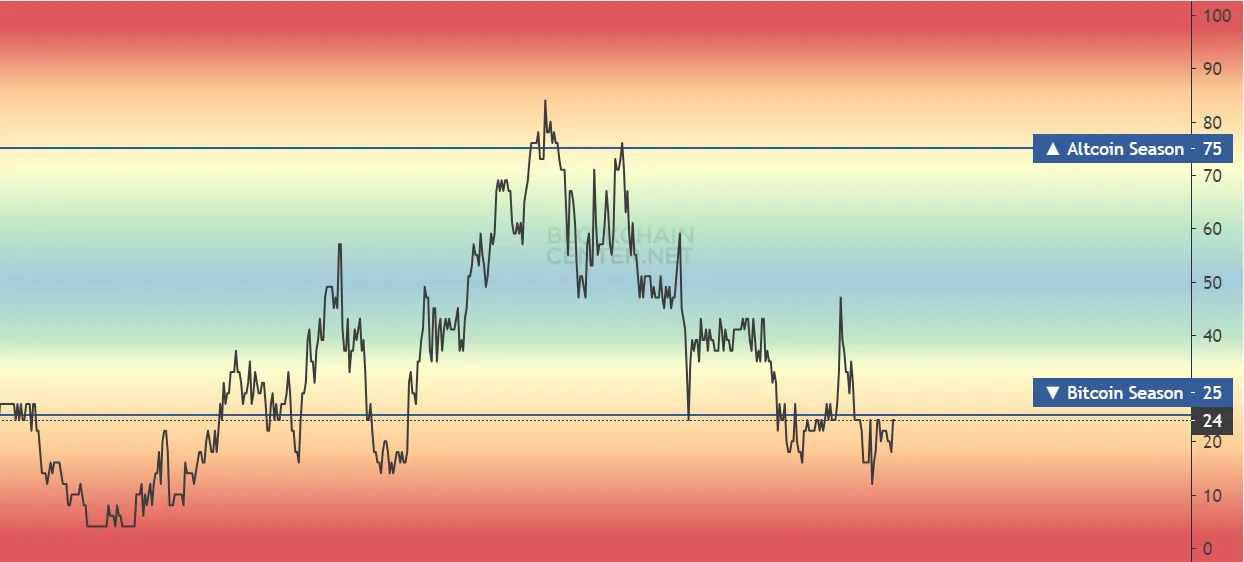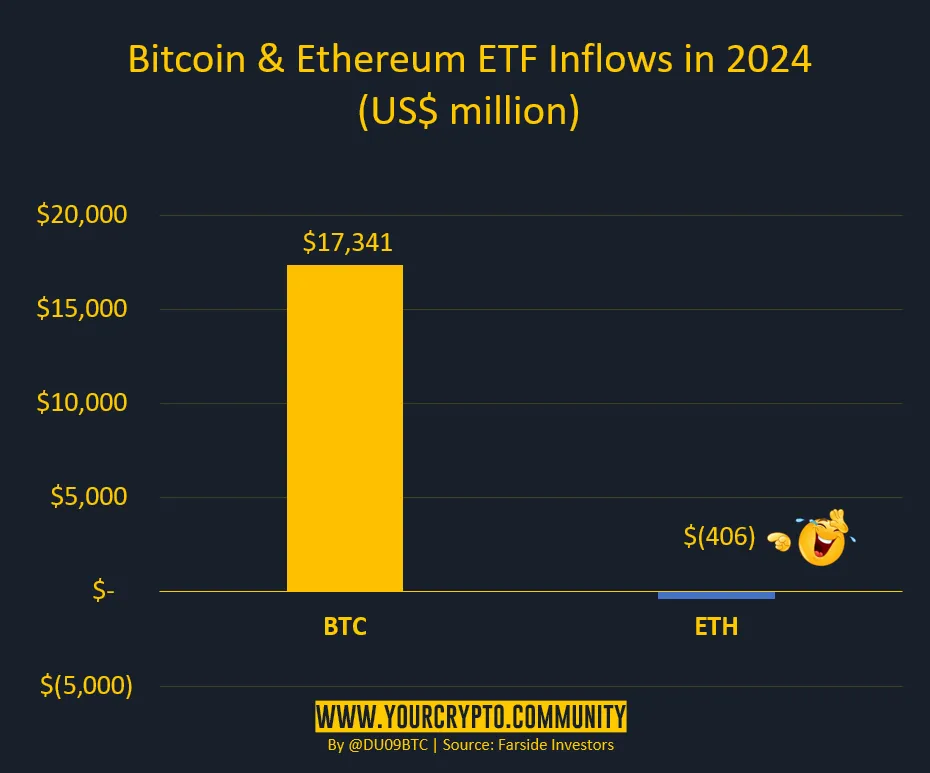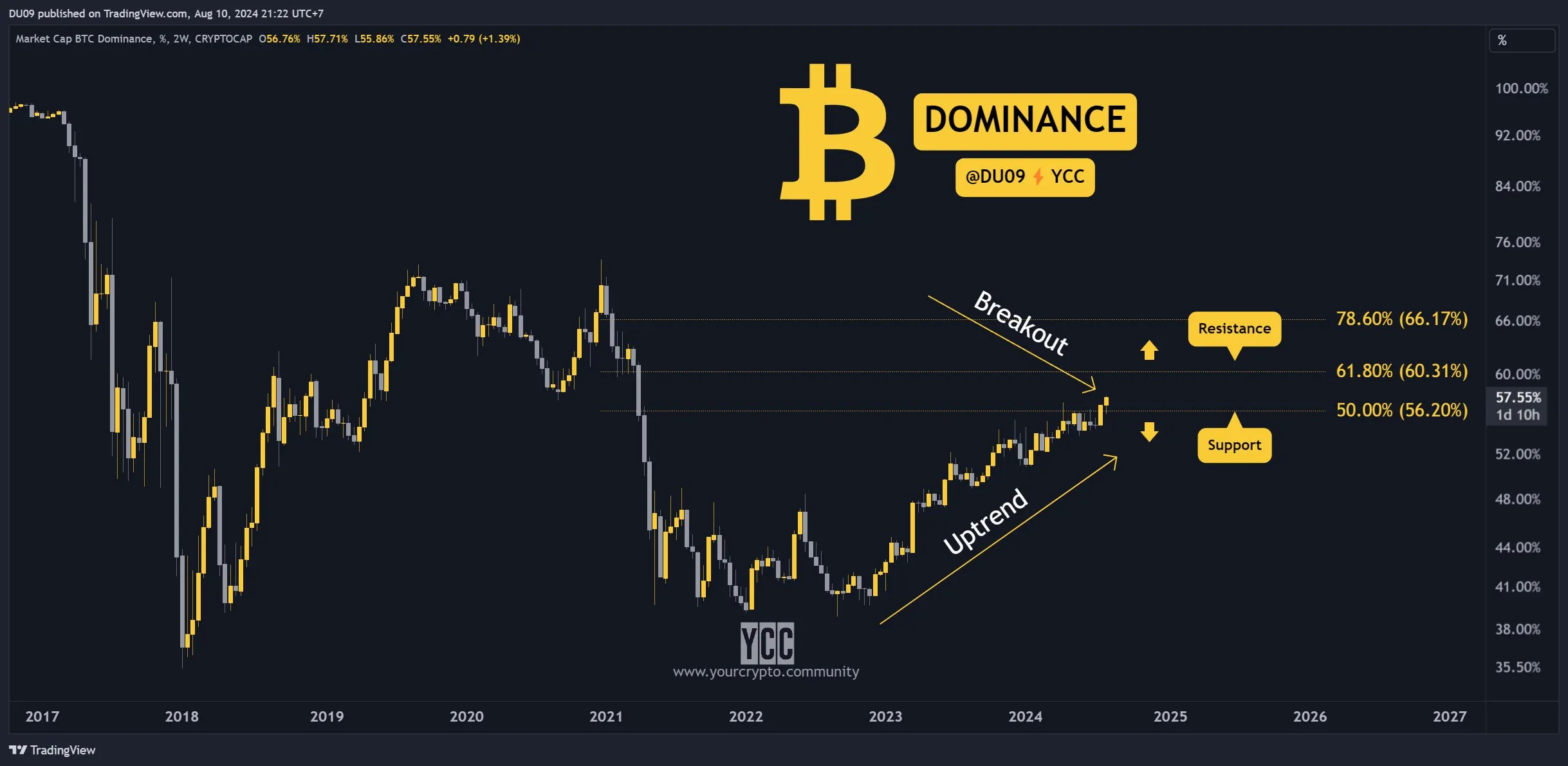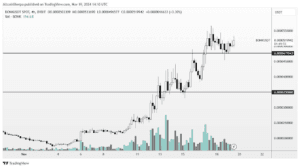What If Altcoin Season Never Arrives? Analyst Raises Concerns
Duo Nine, a prominent crypto educator and analyst, posed a question no one wants to hear. “What if altcoin season never comes?,” he asked, with multiple data to back his rhetoric.
An altcoin season is an informal term describing a phase where investing in altcoins provides better returns than pouring capital into Bitcoin (BTC).
Analyst Explains Altcoin Season Delay
After the fourth Bitcoin halving, the crypto market’s next major focus, aside from Ethereum ETFs (exchange-traded funds) approvals and launches, was the anticipation of an altcoin season. Several key events typically lead up to this phase.
First, fresh capital enters the cryptocurrency market, initially flowing into stablecoins, Bitcoin, or Ethereum. These assets are prioritized due to their perceived stability compared to smaller market cap cryptocurrencies. Next, this influx of capital triggers a market rally.

Finally, profits from these assets, along with additional capital, begin to flow into altcoins. This capital rotation is what sets off an altcoin season. According to the altcoin season index, the crypto markets are currently still in the Bitcoin season.
Negative Flows for Ethereum ETFs
Duo Nine outlines a scenario where the sequence leading to an altcoin season hasn’t fully materialized. He suggests that investing entirely in altcoins might be problematic, pointing to negative flows for Ethereum ETFs as a concerning sign.
“Since January 2024, the Bitcoin ETFs managed to attract over $17 billion in net investments after Grayscale sales. Ethereum’s ETF went live in July. Net balance on that? -$406 million,” the analyst wrote.
Read more: What Is Altcoin Season? A Comprehensive Guide

The negative flows for Ethereum ETFs come amid ongoing Grayscale customer redemptions following the conversion of its trust to ETFs. Before the approval of spot ETFs, the Grayscale Bitcoin Trust (GBTC) was allowing investors to redeem shares for value in US dollars. Now, with BTC and ETH ETFs available, customers are opting to redeem their shares by selling Bitcoin and Ethereum, contributing to the negative flows.
Per the analyst, while Grayscale’s customers sold $2.3 billion in ETH since July, ETF buy pressure has not been enough to offset this sell-off. Duo Nine sees no difference for an altcoin season if a Solana ETF launches.
However, it’s important to recognize that the ETH ETF market is still in its early stages. Given this context, it’s crucial to understand that while the short-term outlook for spot Ethereum ETFs may be bearish, the mid- and long-term prospects remain bullish.
In hindsight, it took some time before Bitcoin rallied following spot BTC ETF launches on January 11. The pioneer crypto chopped horizontally for slightly over a month before extending north.
“The reason that investor buying of the new Bitcoin ETFs isn’t pushing up the price of Bitcoin is that the outflows from GBTC plus selling of BTC exceed the combined inflows into all of the other ten Bitcoin ETFs. Once the initial ETF demand wanes, I expect a bigger price drop,” economist Peter Schiff said at the time.
Since the launch of Ethereum ETFs on July 23, barely a month has passed, leaving ETH with ample time for price discovery. Once Grayscale customer redemptions ease, ETH ETF flows could stabilize in the positive, with capital inflows into Ethereum rotating into altcoins.
Bitcoin Dominance Breakout
The analyst also bases his ‘no altcoin season’ thesis on the breakout seen in the Bitcoin dominance chart. This means BTC outperforms altcoins, suggesting a lack of confidence in the latter. Based on CoinGecko data, BTC dominance currently sits at 53.8%.
This turnout is likely ascribed to prevailing market uncertainty amid global geopolitical tension, political frenzy in the US, and recession fears, among other volatility-inducing narratives. These prompt investors to rally behind Bitcoin, a flight to safety, as BTC is considered a better haven than altcoins.
Nevertheless, some investors view high Bitcoin dominance as an opportunity to accumulate altcoins at lower prices. When Bitcoin’s dominance is high, altcoins may be undervalued relative to Bitcoin, presenting a buying opportunity for those who believe in the long-term potential of specific altcoins.
Read more: 11 Cryptos To Add To Your Portfolio Before Altcoin Season

Based on the chart above, while Bitcoin dominance continues to rise, it approaches critical resistance, which could see altcoins make headway. However, amid the skepticism for an altcoin season, some say even if it does come, it may fail to be as rigorous as that of 2017 and 2020.
“This narrative comes every cycle by Bitcoin maxis and never worked. Eventually, a portion of the bitcoin supply flows into ALTs when the dominance starts plummeting. There comes a time when dominance goes below 45% and it would happen this cycle as well,” another X user added.
Altcoin season delays notwithstanding, analysts are already watching some altcoins this month, with some rekindling hope that delay may not necessarily mean total absence.
Disclaimer
In adherence to the Trust Project guidelines, BeInCrypto is committed to unbiased, transparent reporting. This news article aims to provide accurate, timely information. However, readers are advised to verify facts independently and consult with a professional before making any decisions based on this content. Please note that our Terms and Conditions, Privacy Policy, and Disclaimers have been updated.








